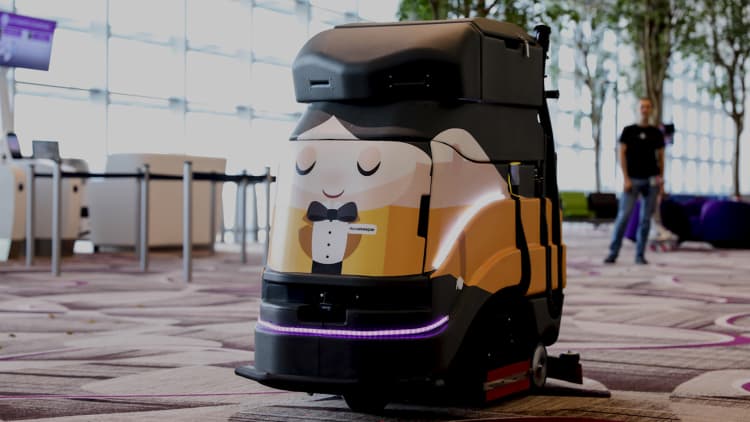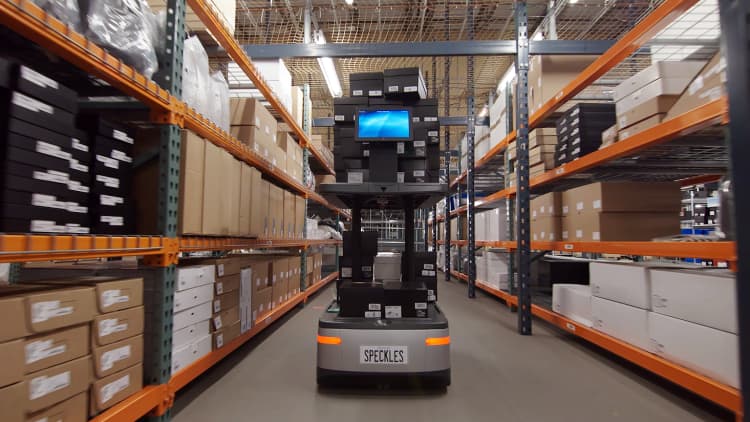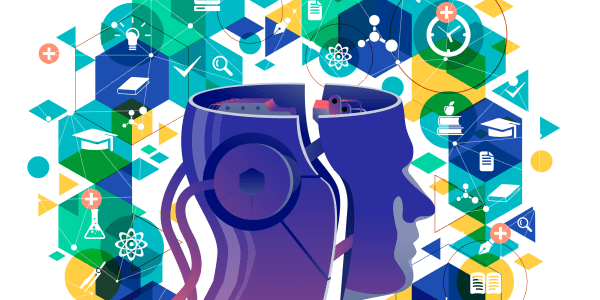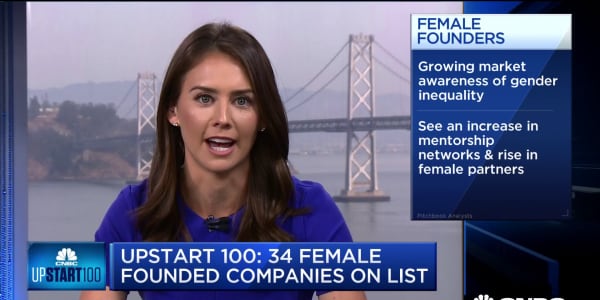Three Upstart 100 companies are aiming to transform their respective industries by handling the "dull, dirty and dangerous" tasks that human workers used to do, while boosting the productivity of the businesses who buy them.
While concerns remain that automation will eliminate jobs — as many as 73 million by 2030 in the U.S. alone, according to forecasts by McKinsey Global Institute — robots can also drive productivity, leading to the creation of new work for people.
One famous example of this is the spread of automated teller machines in banking. At first, ATMs reduced the average number of workers in a given bank branch. But they also made it more affordable for banks to open new branches, and drove up the number of overall banking transactions. According to research by Ravin Jesuthasan and John W. Boudreau, authors of "Reinventing Jobs," in 1985 the U.S. had 60,000 ATMs and 485,000 bank tellers. By 2002 the number of ATMs increased to 352,000 and the number of human bank tellers also spiked, to 527,000.
How much will automation help the economy, exactly? PwC predicts that by 2030 AI, including software and robotics, is likely to add $15.7 trillion to the global GDP, boosting it by about 14 percent.
Here's how these three are aiming to transform work.

Avidbots: This start-up's flagship robot, the Neo, is a "self-driving floor scrubber" used today in airports from Singapore to Paris and in stadiums, warehouses, retail facilities and universities. The robots can avoid obstacles and navigate within sprawling facilities, and companies can custom-paint them so they look like a janitor in uniform. This summer Avidbots struck a deal to put Neo robots to work at universities, cafeterias and restaurants serviced by Compass Group, the facilities management and food-service giant.
iUNU: Backed by Joe Montana, iUNU is bringing robots on rails to greenhouses growing high-value crops, including flowers, lettuce and berries. The company's LUNA system combines machine-learning algorithms, a rail network and autonomous cameras that drive around the greenhouse, capturing time-lapse images of plants as they grow. The system tells greenhouse operators what's working and helps them assign tasks that only humans can do and plan care for their crops. The company's mobile app lets farmers check in on their crops from afar, too.

6 River Systems: Before they started 6RS, Jerome Dubois and Rylan Hamilton were executives at Kiva Systems, the company Amazon bought in 2012 for its warehouse robots. Now they are bringing Amazon-grade tech to the broader warehouse and fulfillment industry. 6RS makes a self-driving cart named Chuck that leads workers around a facility to the items they need to pick off shelves to fulfill an order. Chuck can also help workers restock returned items. And the robotic cart directs itself to recharge throughout the workday, so it can operate around the clock.






